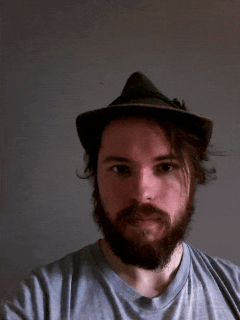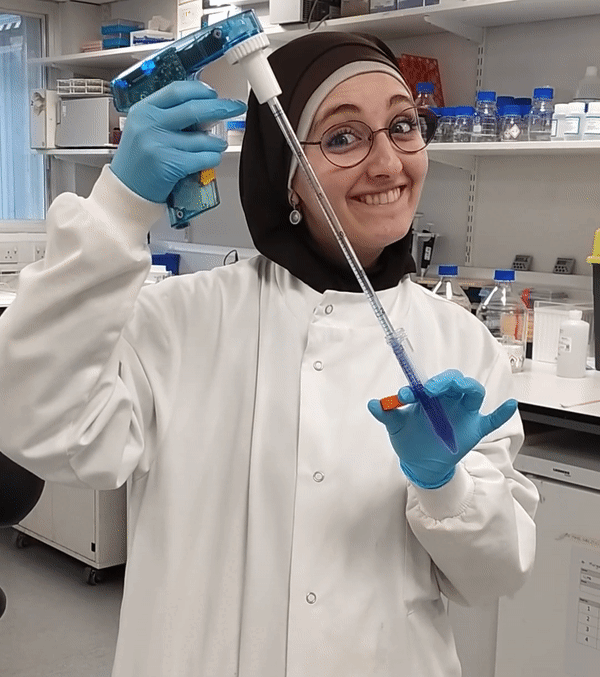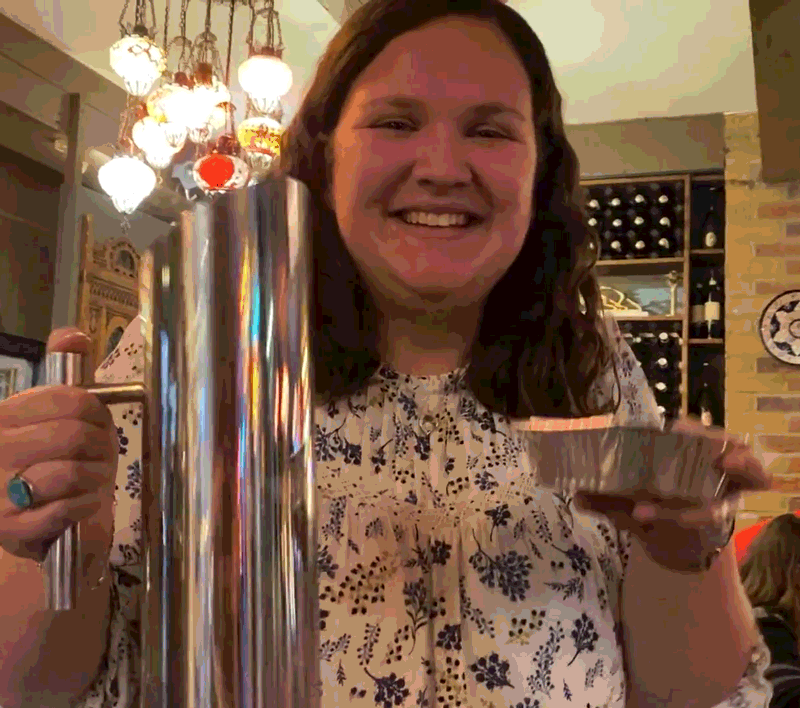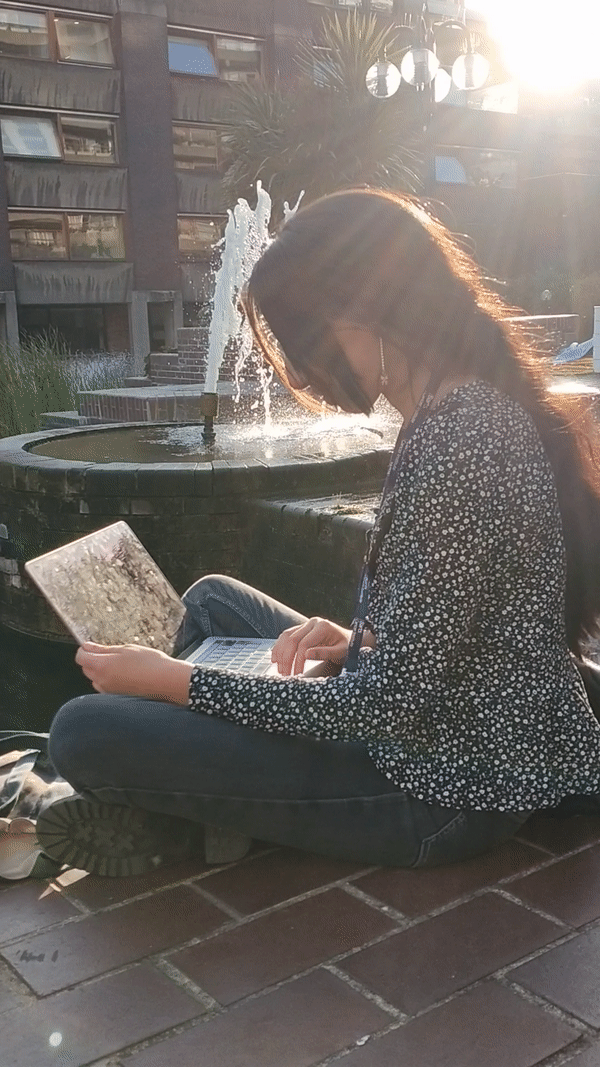So Faraz, how about a few sentences about your scientific journey?
I received my undergraduate degree (BSc Hons) in 2006 from University of Birmingham, before joining the laboratory of Professor John Heath to study feedback regulation of Receptor Tyrosine Kinase signalling, and its role in cancer as a tumour suppressive mechanism.
After completing my PhD, I moved to London in 2010 to study cancer cell migration and invasion as a postdoc in the laboratory of the late Professor Chris Marshall. Thanks to an unexpected discovery during my post-doc, I started working on RNA Binding Proteins (RBPs) and their role in cell migration and cancer invasion. Then in 2017, I received an Medical Research Council (MRC) Career Development Award fellowship to start my own group at the
Barts Cancer Institute, Queen Mary University of London, and study RBPs in the context of cancer. In 2024, we moved to the Department of Biochemistry at the University of Oxford, where we continue our research into RBPs and their role in cancer. By using various state-of-the-art multi-omics approaches, our aim is to identify and characterise cancer-relevant RBPs whose activities could be therapeutically targeted for combatting cancer.
Apart from leading the Mardakheh lab, what else do you do?
I am also a tutorial fellow at Brasenose College. If you can't find me in the lab, I will most likely be tutoring Brasenose biochemistry students in my college. To find out more about my college role, visit: https://www.bnc.ox.ac.uk/about-brasenose/academic-staff/633-professor-faraz-mardakheh
No problem!
2017 - now:
Dr. Faraz Mardakheh's lab,
Barts Cancer Institute
& University of Oxford.
2012 - 2017:
Dr. Felix Meissner's lab,
Experimental Systems Immunology (independent research group, Department of Proteomics and Signal Transduction, Prof. Dr. Matthias Mann) Max-Planck-Institute of Biochemistry (MPI-B), Martinsried,Germany
2011-2012:
Prof. Dr. Johannes Graumann's lab, Biochemistry and Proteomics Core Research Division, Weill Cornell College in Qatar (Doha, Qatar)
2009–2011:
Prof. Dr. M. Mann's lab,
Department of Proteomics and Signal Transduction, MPI-B
Research Technician huh?
I received my degree at the Max Planck Institute of Biochemistry in Munich. But since this profession is unknown in many countries (...), sure call me Research Technician!
Lets talk Research Focus.
Starting my carrier in Prof Matthias Mann Lab enabled me to get insight into Proteomics from all different kinds of angles. I worked in Immunology, Neurodegeneration and now Molecular Biology. But always combined with Mass Spectrometry, so I guess this is where my focus lies in the end. In Faraz's lab, I have been particularly focused in developing new Mass Spectrometry-based methods to study RNA binding proteins and their interactions with RNA!
Cool Cool, I think we are coming to an end here, is there anything else you want to add.
Stay hungry!
Hey there Zeinab! Can you tell us a bit about yourself?
Hi, I'm Zeinab, a postdoctoral researcher in Faraz's lab. I am a multidisciplinary open-minded scientist, an RNA biology fan, and a microscopy lover. Same as in science, my interests are very diverse ranging from food, astronomy and cars to graphic design, macro-photography, hiking, and gardening!
Our readers will be interested to hear where it all started...
My background in scientific research started during my Master's thesis in Florence Besse's lab, where I was initiated into the field of RNA biology. There, I studied the role of the RNA-binding protein IMP in RNA localization during the process of neuronal remodelling in Drosophila. This experience sparked my interest in understanding the intricate mechanisms underlying RNA localization and regulation. This led me to delve deeper into the study of RNA localization during my PhD, but this time in the context of cell adhesion signalling and cell response to the tumour microenvironment.
Can you tell us more about your PhD?
Excellent! Let’s talk more about your postdoc.
Fun fact about me: I remember my first "scientific" reasoning. I was about 3.5 years old when I noticed the holographic reflection appearing on the abdomen and wings of big black flies under the sunlight, and I thought: “this is so ‘pretty’, pretty things surely taste good!” (This was my hypothesis). So, as a brave and clueless baby scientist, I put my hypothesis to the test, and ate a poor black fly that was stuck between the curtains of the living room windows. Sadly, this first experiment wasn't conclusive as I don't remember the taste of the fly, but instead, I do remember the screams and the face of my horrified mother.
Welcome to the team Emilie! Let’s kick things off with one sentence about yourself.
Hello! I’m Emilie, a CRUK PhD student and lover of all things outdoors and baking!
Where does your enthusiasm for research come from?
My scientific journey started with a BSc in Biomedical Science at the University of Brighton, where I did a research project on inhibiting the migration of PDAC cells by targeting the S100P/RAGE interaction. This is really where my passion for studying pancreatic cancer started, which I am still following to this date!
But you have also brought a bunch of RNA skills to the table, how did you acquire those?
After my undergrad, I went on to study an MSc in Cancer Cell Biology at the University of Sussex where I gained skills in RNA biology during my MSc research project in Prof. Sarah Newbury’s lab.
This leads on to where I am now, doing my PhD in Faraz’s lab where I get to combine both my passions for Pancreatic cancer research and RNA biology, to investigate the mechanisms which upregulate ribosome biogenesis in pancreatic ductal adenocarcinoma cells, in order to fuel tumour growth.
This is all nice and good, but what we are really her for today is some nice baking recipes!
Reagents:
Equal weight measures of Beaten eggs, Caster sugar, unsalted butter and
self-raising flour. 1 tsp
baking powder. 2 tbsp milk. As
much Raspberry Jam as you want, and 150ml
double whipped cream.
1. Cream together the eggs and sugar.
Hey Zaynah! Whats the deal with you?
Hey! I’m Zaynah, BBSRC-funded PhD student and the new recruit to the Faraz-Sasi dream team.
You know what I am wondering....
You’re probably wondering how I got here. Well, I completed my undergrad in Biochemistry at University College London, with a thesis on RNA phase separation in malaria parasites. I continued as a Masters student, then research assistant at Dr Kristine Arnvig’s lab, validating the targets of a small non-coding RNA in the bug that causes TB. I’ve even ventured into the deep dark world of biophysics to understand how non-canonical DNA structures affect insulin gene transcription in diabetes. Nucleic acids are the recurring theme in everything I do, but I especially have a soft spot for RNA (and RBPs by extension)!
Now remind me, why do we pay your bench fees again?
With Faraz and Sasi, I’m investigating how metabolic stresses such as various nutrient deprivations can remodel the RNA-binding proteome, and how this remodeling could be important in the context of cancer. I want to explore the idea that metabolic enzymes lead “double lives” as unconventional moonlighting RBPs, whose cellular activities are regulated by RNA itself. Pretty cool if you ask me.
OK, you convinced me! But just in case, are there any Plan Bs?
In case the whole academic career thingy doesn’t work out, I also can sell cakes, write future literary masterpieces, and make people laugh with my comic genius (for free!!).
Hello! Tell me about the woman behind the safety goggles.
Hi there! I am Maia Cooper and currently a BBSRC LIDo PhD student in both Sasi Conte’s lab at King’s, and Faraz’s lab in Oxford.
Of all places, how did you end up here?
I studied at the University of Birmingham for my MSc in Biochemistry degree, during which I carried out purely bioinformatics research projects, including machine learning to predict drug developability and protein structure prediction. I then took a U-turn to wet-lab work, moving to London to research developmental neurobiology in the fruit fly as a research assistant in Vil Fernandes lab (UCL), aka dissecting fly brains! After realising I like both wet-lab work and bioinformatics, I then joined the interdisciplinary LIDo programme.
Here I found my love for RNA-binding proteins during my rotation in Faraz and Sasi’s labs, leading me to join the team as a proper PhD student!
So how does your project fit in with the Marda-theme?
My project is focused on investigating the role of RNA-binding proteins in hypoxia. Specifically, I am looking at the changes in ribosomal RNA processing that allow the cellular adaptation to hypoxic stress, and the impact of such adaptive mechanisms on cancer cells.
Can you tell us a bit about your hobbies? But none of that cliché stuff!
Guess what! In my spare time I love cooking, drawing/painting, reading (and any other cliché hobby you can think of). I am also an avid animal lover!






